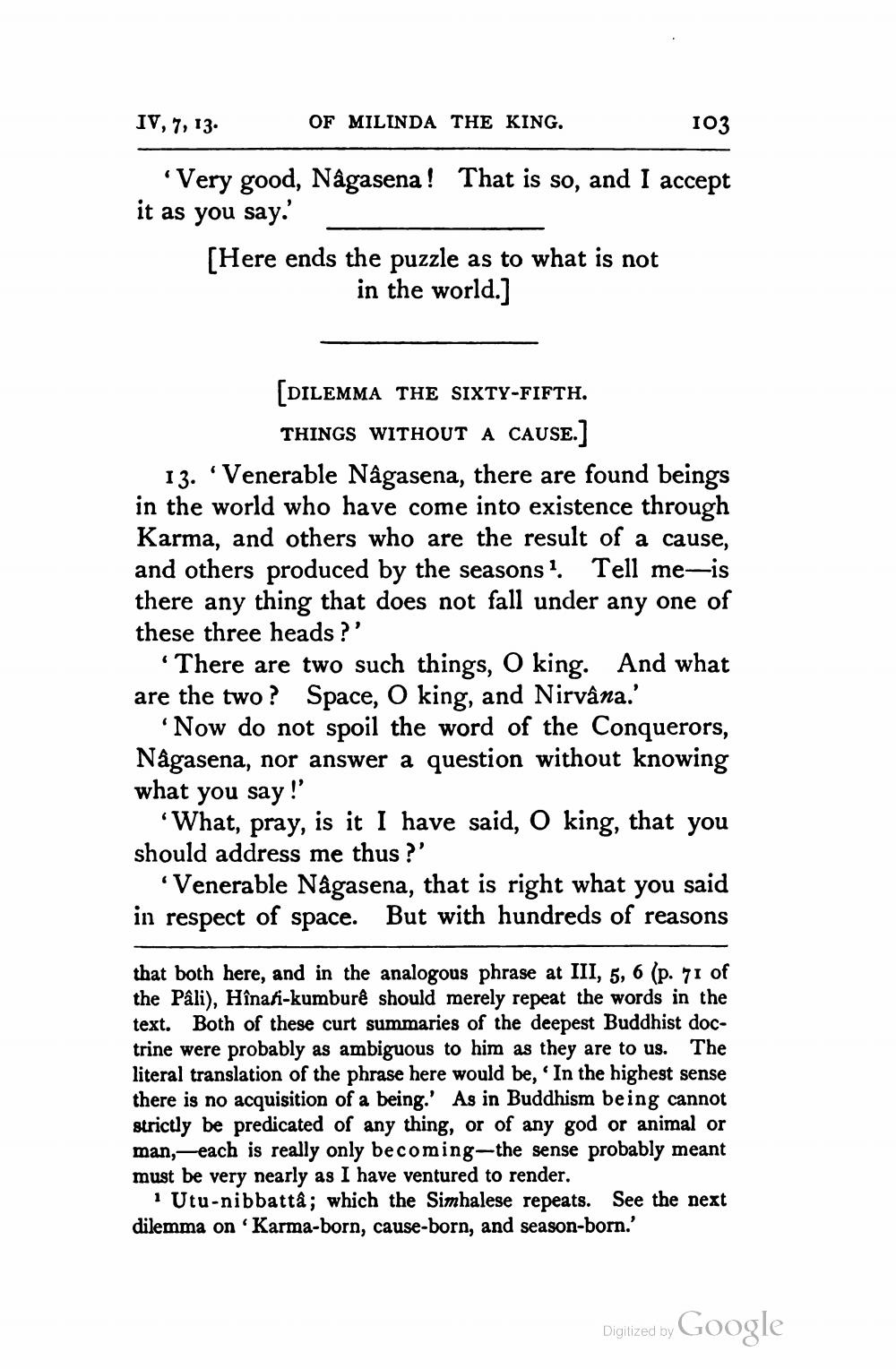________________
103
IV, 7, 13.
'Very good, Nâgasena! That is so, and I accept it as you say.'
OF MILINDA THE KING.
[Here ends the puzzle as to what is not in the world.]
[DILEMMA THE SIXTY-FIFTH. THINGS WITHOUT A CAUSE.]
13. 'Venerable Nâgasena, there are found beings in the world who have come into existence through Karma, and others who are the result of a cause, and others produced by the seasons1. Tell me-is there any thing that does not fall under any one of these three heads?'
'There are two such things, O king. And what are the two? Space, O king, and Nirvana.'
'Now do not spoil the word of the Conquerors, Nâgasena, nor answer a question without knowing what you say!'
'What, pray, is it I have said, O king, that you should address me thus?'
'Venerable Nâgasena, that is right what you said in respect of space. But with hundreds of reasons
text.
that both here, and in the analogous phrase at III, 5, 6 (p. 71 of the Pâli), Hînati-kumburê should merely repeat the words in the Both of these curt summaries of the deepest Buddhist doctrine were probably as ambiguous to him as they are to us. The literal translation of the phrase here would be, 'In the highest sense there is no acquisition of a being.' As in Buddhism being cannot strictly be predicated of any thing, or of any god or animal or man, each is really only becoming-the sense probably meant must be very nearly as I have ventured to render.
1 Utu-nibbattâ; which the Simhalese repeats. See the next dilemma on 'Karma-born, cause-born, and season-born.'
Digitized by Google




